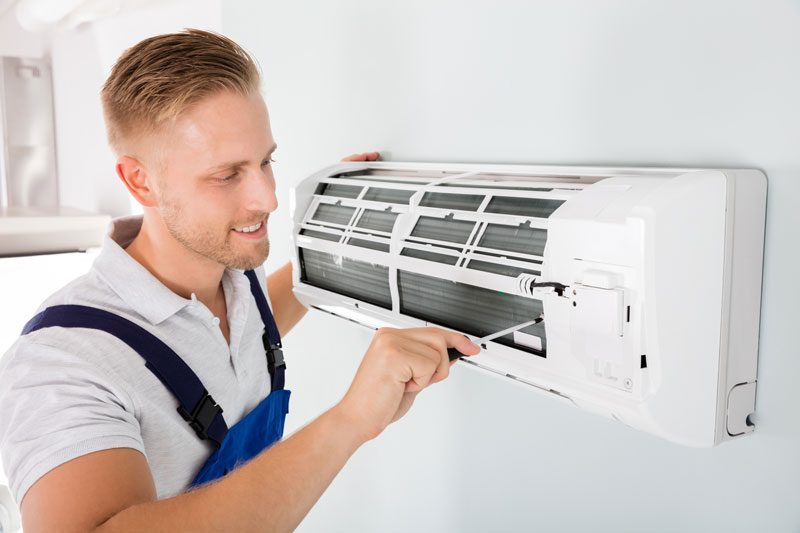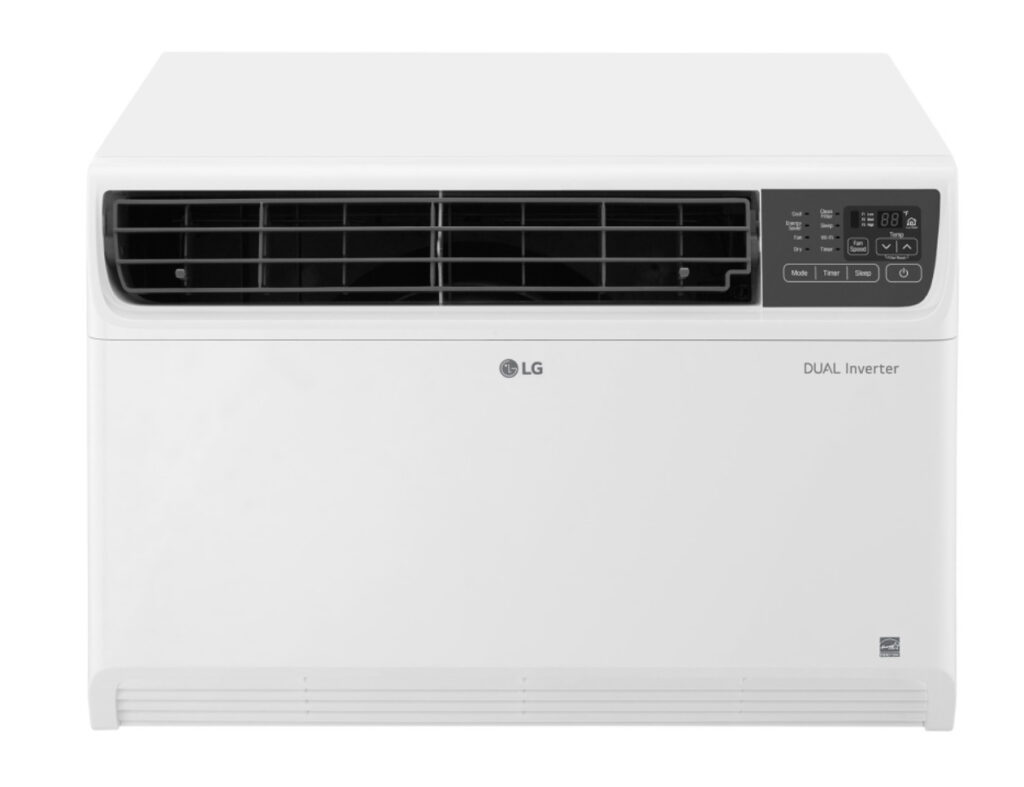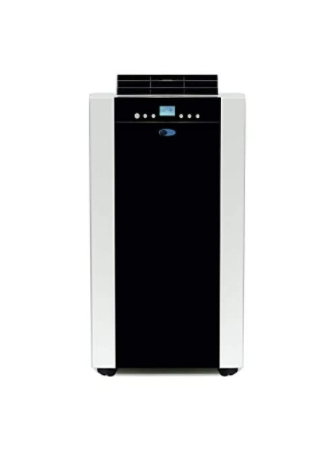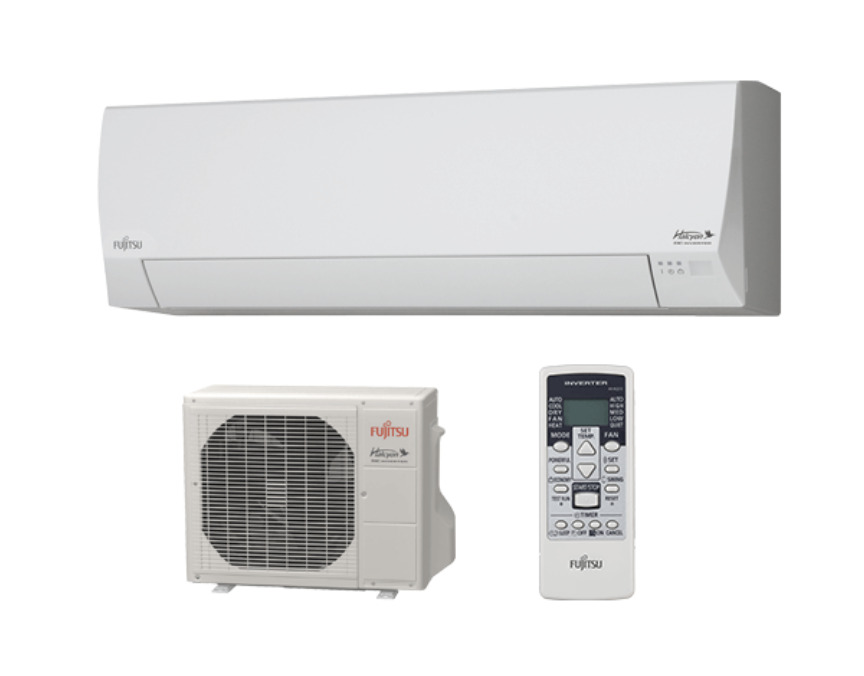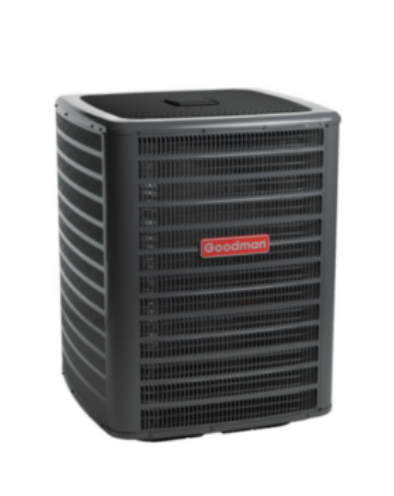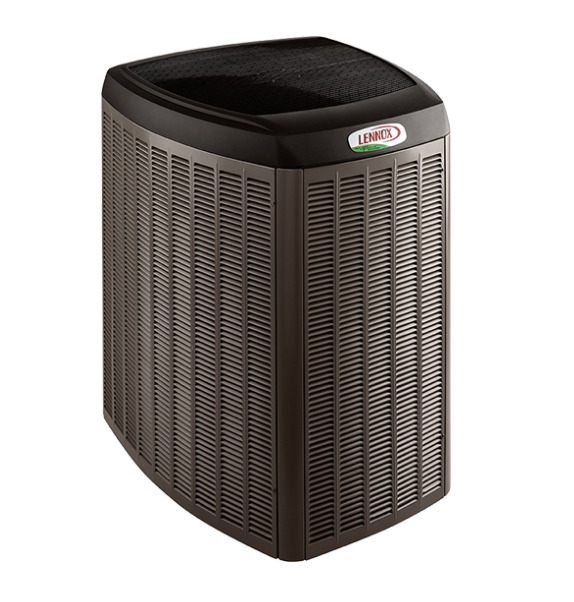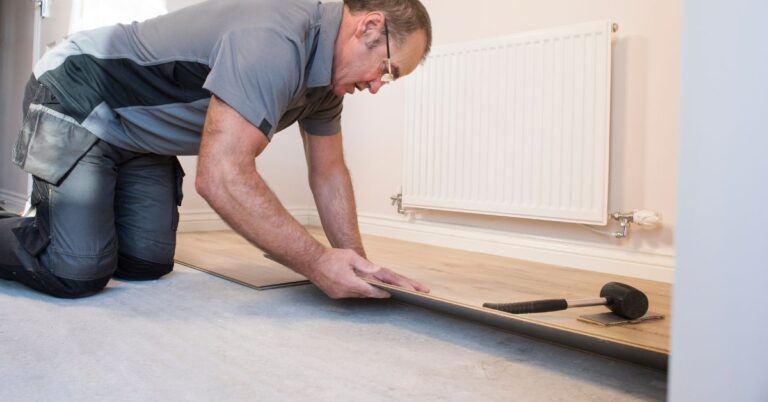Tips for Buying the Best Air Conditioner in Canada [2022]
After record-breaking temperatures last year, it’s no surprise that more homeowners are shopping around trying to get the best air conditioner for their homes. These major appliances aren’t cheap with the cost of central A/C plus installation rising upwards to $5,000 or more.
Read on to learn about the types, features and other must-know details about A/C units. Use this information to make an informed choice about the best air conditioner to buy. The best part? The choice gets simpler with a list of the top air conditioner picks revealed at the end of this guide.
Types of A/C Units
There are four main types of air conditioning systems.
1. Window Air Conditioners
Window air conditioners come at the most affordable price with the smallest models starting at less than $200.
The cheapest window A/C units have the smallest cooling capacity. Typically around 5,000 to 6,000 BTU, these units are only capable of cooling a 300 square foot room or smaller.
Medium capacity models are more expensive, starting at $400 and more difficult to install. These units can cool 250 to 400 square feet.
The capacity of a large window air conditioner ranges from 9,800 to 12,500 BTU which can cool up to 650 square feet. These units can set you back $600 and they are pretty bulky and difficult to install.
2. Portable Air Conditioners
Portable air conditioners are good for when you cannot install a window unit, such as condo buildings with installation restrictions.
These models range between 9,000 and 15,500 BTU and can cost between $350 to $1,000 or more. Most models feature wheels that lets you move them from room to room (as long as you understand how to install the hose that vents outside).
The common disadvantages of portable models are that they tend to be noisier than window units. They are also not as portable as the name suggests, weighing around 50 to 80 pounds. Portable models can also be pricey compared to wall mounted units, with similar performance.
3. Split or Ductless Air Conditioners
If you want to avoid window installation but don’t have the option for central A/C, then consider a split ductless air conditioner.
Compared to the window and portable air conditioners, split ductless A/C units offer quiet operation. They are more pricey than portable or window units, costing $1,000 or more; however, when compared to central A/C, these units are more affordable.
4. Central Air Conditioners
Installing a central air conditioning system in your home is an expensive investment but if you live in a hot climate, it may be critical for in-home comfort.
The central air conditioning unit offers the best performance on a per square foot basis, since it offers consistent cooling across the home. Central A/C is also the quietest air conditioner unit; it often comes with advanced features like built-in timers or Wi-Fi thermostat compatibility.
While a central conditioner unit will deliver efficient cooling, it will also cost you thousands of dollars. Cost of these units can vary greatly—with some starting at $2,000 and others climbing to $10,000 or more.
It’s a big investment but could be a critical addition to a home located in a hotter climate.
What is the Best A/C for Your Needs?
When selecting your A/C unit, consider your needs, the size of your home, and the features that are most important to you.
These are the three main factors that will determine which air conditioner is right for you:
1. Budget
If you don’t have the budget to invest in the installation of central A/C then portable or wall units may be a more affordable alternative.
However, if you have the budget and you want efficiency, a central A/C is the best option. In the long run, a central A/C unit will save you money on your energy bills. It’s efficient and stable, which means a more hospital in-home environment at less cost and fuss.
2. Climate
Some climates require more frequent use of an air conditioner than others. If you experience milder summers and you’re likely to turn your A/C on only a few times a year, the purchase of a more affordable model, like a portable or a window air conditioner, could be sufficient.
But if you live in a climate with long, hot summers then the installation of a central air conditioner is a good investment.
3. Space
The choice of your ideal air conditioner also depends on the size of your home. The inexpensive models can be sufficient for smaller rooms and apartments.
How to Buy the Best A/C Unit?
When buying a new air conditioner for your home, consider how these 12 factors will impact your needs and budget.
1. SEER rating
SEER stands for Seasonal Energy Efficiency Ratio. Every air conditioning unit has its own SEER rating. This is an indicator of energy efficiency you can expect from it.
The higher the SEER rating the more efficient your cooling system is since A/C units with higher SEER ratings will keep your home cool, while saving you money on energy bills.
Modern A/C units start at 13 and can go as high as 26.
When shopping for an air conditioner, keep in mind that more expensive models, with higher SEER ratings, can sometimes be less costly in the long run, as they are more efficient.
2. ENERGY STAR rating
The older models don’t tend to have an energy star rating certification and it is indeed not necessary, but it is a further indicator that your A/C unit will run efficiently and save you cash on cooling bills.
The modern air conditioner units that are energy star certified have better insulating materials and eliminate unnecessary leaks.
3. BTU (British Thermal Units)
The British Thermal Unit indicator on your device illustrates how powerful an air conditioner is in cooling a room.
Here are the general guidelines on what BTU unit is required, based on the size of your space:
- 150 to 350 square feet: 5,000 to 8,000 BTU
- 350 to 550 square feet: 8,000 to 12,000 BTU
- 550 to 1,050 square feet: 12,000 to 18,500 BTU
- 1,050 to 1,600 square feet: 18,500 to 25,000 BTU
4. Durability and Quality
The good news is that all the air conditioners in the Canadian market meet a certain standard when it comes to quality. A modern air conditioning unit should last you around 10 to 15 years.
Some models come with a more reliable build and can last longer than others. If you want to ensure the longevity of your unit you can select a reliable brand with positive reviews on its durability, or models with rust-resistant and corrosion protection technologies that will protect the unit from the outside elements.
5. Size
Selecting the air conditioner that is the right size is one of the most important factors. If you buy an A/C unit that is too small for your home, it can’t be a surprise when it doesn’t perform in terms of efficiency, cooling properties, or durability.
6. Compressor
The compressor is the heart of your A/C unit. It serves as the go-between between the evaporator, located inside the air conditioner, and the condenser, the unit outside your home.
In Canada, you can get units with single-stage, two-stage, or variable-speed compressors, plus you can choose from three main types of condensers: air-cooled, water-cooled and a combination of the two.
The type of A/C unit you select influences the price, performance, and noise level of the air conditioning unit.
7. Warranty
Let’s be honest. During the 10 to 15 years that you can expect your air conditioner to last, it will probably break or stop working at some point.
Investing in an air conditioner with a better and longer warranty can save you money on expensive repairs and spare parts.
The good news is most central air conditioning manufacturers offer 10-year parts warranties. Like with all things, it’s still important to read the fine print and to keep your A/C operating smoothly with regular maintenance.
8. Budget
The price of your air conditioner can be an indicator of its quality. But this is not always the case. It is important to compare the price with the value the unit will provide for your home.
Smaller homes will be cool enough with inexpensive entry-level models and the most expensive premium conditioner doesn’t always mean that it will be the best fit for your space.
When it comes to price, most A/C units fall into three main categories:
- Entry-level – Mostly single-stage compressor units that stick to basic functionality with less energy efficiency. There are some two-stage models in this category with more advanced features.
- Mid-range – Some have a two-stage compressor but there are lots that still have a single-stage compressor. You can expect more features and more advanced technologies with longer warranties.
- Premium – These are the most expensive models and typically come with brand names most people recognize, such as Trane, Lennox and Carrier. They have a two-stage or variable speed compressor, attractive designs, advanced features, the highest energy efficiency ratings, and longest warranties.
To help ballpark the costs, budget between $2,000 and $6,000 to have a new, central air conditioner installed in your home. (Your actual costs will depend on the size of your home, the A/C brand, the unit’s SEER and dB ratings, among other factors.) It’s a good idea to get multiple quotes from different vendors and installers, as this shopping around will mean getting the best option at the best price.
9. Noise
If you’ve ever slept in a room with a noisy air conditioner, you know the value of a quiet A/C unit.
While no air conditioner is silent, it pays to pay attention to the decibel (dB) rating. A mid-70dB rating is about average for an A/C unit, but it still produces the same level of noise as a vacuum cleaner or washing machine. Better – and more expensive — options will have a mid-50dB rating (which is similar to the noise made by a dishwasher).
When considering the type of A/C unit to get, keep in mind that portable air conditioning units, including window A/C units, are always noisier than central conditioning systems.
10. Installation and Maintenance
With many air conditioning systems, professional installation and maintenance are required to ensure your cooling unit will last you for many years.
Even though you might not be able to avoid these expenses, some brands focus on designing their A/C units with straightforward maintenance and installation, saving money on professional services.
11. Portability (Applies to Portable Models)
If you choose to go with a portable model, consider whether it is as easy to move around as you need it to be. If you need to move your unit frequently, don’t select a cooling system that is too heavy, bulky, or awkward to carry.
Some air conditioning units have features that make them easy to move around, like wheels and handles.
12. Additional Features
When looking at advanced models, many air conditioners come with impressive features and technologies that go beyond cooling the air. Some of these include.
- Self Diagnostics – Self-monitoring functions are useful for maintenance issues. The professional repairs will be faster and if the issue is minor, like a dirty filter, you can fix it yourself. With these self-monitoring tools, your air conditioning unit will notify you when there’s an issue, which gives you the certainty that it is always operating at optimal performance.
- Smart Thermostat and Remote Control – These advanced features let you can customize the thermostat programming, set a 24-hour timer, and make the cooling system more energy efficient.
- Humidity Control – If you live in a climate with hot humid summers, getting an A/C with humidity control can be life-changing. While this is an important feature of any cooling system, a model that features enhanced humidity control will make your air more comfortable and easier to cool.
- Air Quality Improvement – If you’re not only interested in humidity control but also in improving the air quality of your home, some models effectively remove contaminants ensuring improved indoor air quality.
- Green Features – It’s important to reduce the environmental impact of your A/C system by making sure it is energy efficient. Apart from being good for the environment, the green properties of your cooling system will save you money on energy bills too.
Best Air Conditioner Units in Canada – Our Top Picks
Best Window Air Conditioner
Cooling capacity: 14,000 BTU
This LG model is our best pick for the category of window air conditioners. It comes with a powerful cooling capacity of 14,000 BTU and is able to cool an area of up to 800 square feet. However, being bulky and weighing 98 pounds, it will also take quite a large amount of space in your room.
It is exceptionally quick and effective, especially for a window air conditioner. In terms of the noise, you can expect a steady hum that blends in with the background. It features a Wifi control, which means you can easily turn it on and off from your phone, adding an extra touch of convenience.
This A/C unit also features a multi-compressor that controls the cooling, it has a dual-inverter design which means it can speed up the cooling when needed to provide constant temperature, rather than just cycling on and off. This reduces the wear on the compressor as well as the energy used.
And, don’t worry if you end up misplacing the remote. A replacement remote for the LG window A/C is less than $25 from Amazon—and delivered right to your door!
Best Portable Air Conditioner
Cooling capacity: 14,000 BTU
This portable model comes with a similar cooling capacity as our window top pick with the ability to cool around 500 square feet. Being a similar weight, around 80 pounds, it still takes up a fairly large space for a portable air conditioner.
Its dual-hose configuration, rather than the more common single-hose one, enables more efficient and faster cooling. This is reflected in positive customer feedback and is the main reason why this unit often ranks high in its category. Averaging around 4-star customer ratings on Amazon, homeowners vouch for its ability to maintain a consistent temperature.
The model enables you to program the settings to your desired temperature and control them remotely. It also offers a large temperature range, meaning it can accommodate a variety of different conditions and climates.
One of the best extra features is its self-evaporating function which eliminates the need to drain water from your air conditioning unit.
This air conditioner also offers exceptional versatility. You can also use it as a fan to circulate air without cooling it, or as a dehumidifier for a more comfortable home on the days, it’s not that hot.
Best Ductless Air Conditioner
Fujitsu General Halcyon Wall Mounted RLF/RLX Series
Cooling capacity: 12,000 BTU
Fujitsu is a trusted brand of ductless air conditioner units and is known for its highly efficient heat pump that comes with great features. The ductless heat pump comes in a variety of lengths, giving you the freedom to have the indoor unit 40-50 feet away from the outdoor unit.
No need for ductwork means less energy loss which can result in up to 30% energy saving. The deoxidizing Blters remove dust and dirt, ensuring a healthy home without mould.
This model heats and cools with an efficient variable capacity inverter technology and boosts the comfort levels with an advanced humidity control A/C mode.
Other convenient features include a wireless remote, a 24-hour timer with a sleep function, and a safe restart after a power outage.
Best Warranty Coverage
Entry: Goodman GSXC18 or GVXC20
Mid-range: Amana mid-range
Premium: Amana premium models or Trane XV18
In general, a longer warranty means the manufacturer stands behind their product with more confidence, so you can expect a new air conditioner to perform efficiently and reliably for at least as long as the warranty period lasts.
While A/C warranties can vary quite a bit, almost all come with a minimum five-year warranty that covers the compressor and functional parts of the unit. Better warranties will offer longer coverage as well as:
- Parts warranties that cover internal functional parts
- Separate compressor warranties
- Unit replacement warranties that provide you with a brand new replacement unit if a major component fails
- While rare, there are some units that offer labour warranties that cover the labour costs of an HVAC technician
Best Central Air Conditioner
Cooling capacity: 22,400 to 58,000 BTU
Lennox is one of the best, quietest, most energy-efficient central air conditioner brands on the Canadian market. It is known for high-end air conditioning units known for their reliability, efficiency, superior performance, and industry-leading energy condensation efficiency.
With its unique Lennox Quantum Coil technology, it is exceptional at handling the heat. Made of aluminum alloy, the material resists corrosion, extreme heat, snow, or rain.
It can be connected to a smart thermostat that maintains adequate and precise comfort, even temperatures and consistent airflow, even when you’re not at home. The enhanced home dehumidification system further improves air quality.
It comes with an Energy Star certificate to help save you money on utility bills and allows you to qualify for energy rebates. Further high-end technologies include a silent fan motor with quiet operation and an option to combine it with a solar unit.
The only downside is that this model is very expensive. But with its superior energy-saving properties, the investment will pay off in the long run. For further peace of mind, it comes with a generous 10-year warranty.
The Bottom Line
With a wide variety of choices in different types and models of air conditioning units available on the Canadian market, it can be difficult to know which one to pick.
Among the 12 things to consider when selecting the best cooling system are the SEER rating, performance measured in BTU, energy efficiency, size, durability, noise levels, budget, and other extra features.
The main types of air conditioning systems include window, portable, ductless, or central air conditioners. Deciding which ones are best for you will depend on the size of the space you need to cool, your budget, and your climate.
If you only need to cool a room or a studio apartment, an efficient window or portable air conditioner will be sufficient. But if you live in a climate with long hot summers and you are willing to invest in a central air conditioning system, the Lennox SL18XC1 is our best pick.

